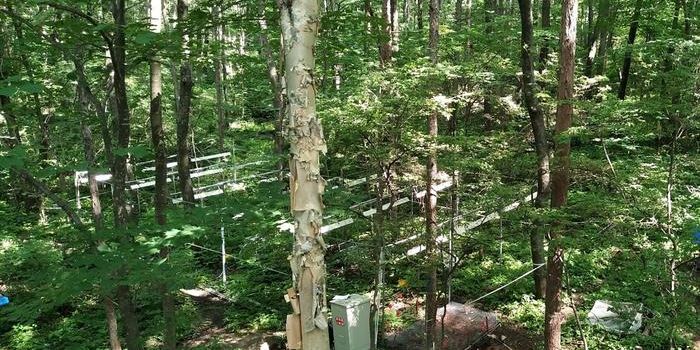Reducing Equipment Waste and Supporting Labs in Need
Science requires equipment and produces waste. Some scientists with adequate funding are not reusing and recycling tools as much as they could, while labs in the developing world are struggling to maintain adequate supplies. Dr. Nina Dudnik founded Seeding Labs to address this pervasive inefficiency. Seeding Labs is a nonprofit that provides affordable used lab equipment and professional opportunities to scientists in the developing world.
“My grandmother’s formal education ended in the eighth grade, while I earned a Ph.D. I, as a high school student, spent a summer playing with a scanning electron microscope while my friend from Nigeria didn’t touch a PCR machine until he had already finished medical school,” Dudnik tells Labroots. She has discovered that one’s place of birth and upbringing play “an outsized role” in access to education and equipment.
She chose to disrupt this established imbalance by founding Seeding Labs while enrolled at Harvard. In a conversation with the Huffington Post, she credits a year in the Ivory Coast in a molecular biology lab as another strong source of inspiration; “simple plastic test tubes were a resource we used and reused; in the U.S., they are seen as inexpensive disposables, used once and thrown away.”
Scientists in the U.S. could be recycling much more than they currently are, despite challenges relating to sterility and time commitments, Kimberly McCoy reported in Scientific American. One McGill University pilot study found their labs generated 100 tons of plastic waste and 275 tons of glass waste annually. McCoy mentions several possible solutions, including reusing glass vials, using recycling bins, and innovative reclamation projects like turning used gloves into patio furniture.
When it comes to larger equipment, Seeding Labs is stepping in to cut back on waste and equip labs in need. Through their Instrumental Access program, scientists can apply to receive reduced cost, high quality equipment and supplies. The nonprofit accepts donations of scientific equipment that has been decontaminated and is in good working condition. Their equipment is then sold at low-cost to scientists affiliated with universities in the developing world who have a demonstrated need, will use it for essential, “life-changing research,” and can maintain and operate the equipment properly.
This useful equipment comes from Industry leaders; “some of the biggest organizations and institutions in the world,” Dudnik says. The competitive nature of scientific endeavors instills in these companies a “need to constantly upgrade, improve and replace equipment. The byproduct of this equipment churn means that a lot of expensive, barely-used, high quality instruments are shelved in favor of only slightly newer versions.”
Seeding Labs works with more than 100 private-sector partners to source and fund the equipment shipments. Participating universities pay a fee, which is adjusted to the income level of their country. They’ve made 54 shipments to 47 institutions in 27 countries so far.
“Scientific talent is everywhere. It has no geographic border, gender or ethnicity and despite common depictions in media, and the industry itself, there is no such thing as a cookie-cutter scientist,” says Dudnik. She shares the story of Dr. Fabrice Boyom, a professor of Biochemistry and the Director of the Antimicrobial Agents Research Unit at the Universite de Yaounde 1 in Cameroon. Boyom is looking for a safe and effective treatment for toxoplasmosis, a disease transmitted by the toxoplasma gondii parasite. “It can have devastating effects on patients with weakened
In 2014, Boyom’s university received an Instrumental Access shipment and is currently using the equipment to seek drugs for toxoplasmosis as well as malaria, leishmaniasis and other diseases in the community. Dudnik says that Seeding Labs’ support gave Boyom’s lab the “foundation and scientific infrastructure” necessary to win a $100,000 grant from the Medicines for Malaria Venture. This award has, in turn, led to multiple “promising leads for possible drug development,” as well as publication opportunities. Also, more than 800 undergrads use the equipment in their studies and advanced students rely on it to complete their MSc and Ph.D. degrees.
Dudnik explains that there are several reasons scientists like Boyom need the donations. They often work in public universities or institutes as opposed to private, well-funded corporations. Unlike universities in the U.S., their schools often lack a sufficient grant system to support cutting-edge research. Limited grant money means less equipment, research, professional development and publishing opportunities.
Dudnik feels the time has come for the scientific community to “demonstrate that building bridges across cultures and geographies not only makes science better, it makes life better for people everywhere.” In the coming years, she hopes to continue to grow their international network of scientists as well as their ambassadorship programs that match scientists in the U.S. with those in the developing world, “to mutually share their skills, ideas and knowledge.”









